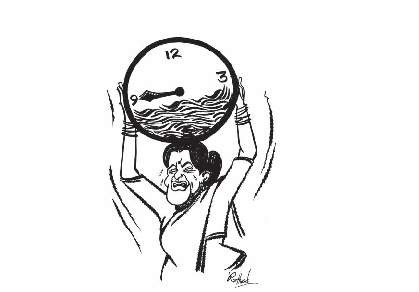Revision of wages
Revision of wages is necessary mainly for 2 reasons: 1) to provide for the erosion of the real value of money due to inflation and 2.) To allow for the workers to share in the fruits of development.

Is the Minimum wage fixed on the basis of time, i.e.hours worked,
or on a piece rate basis(S.(2)(c))
BOTH. The appropriate government has the option of fixing minimum wages:
- A minimum rate of wages for time work, or;
- A minimum rate for piece work18, or;
- A minimum rate of remuneration for employees employed on a piece work , on a time rate basis( referred to as a “guaranteed time work”)
What constitutes a “Normal working day”?(S.13)
The Act fixes the number of hours that make “one normal working day”. This is necessary so that the wage corresponds to the number of hours worked- in the case of time rated work, and to provide for overtime in the absence of which a minimum wage could be paid but the workers required to work for longer periods.
- The Act provides that the number of hours of work per day shall not exceed 9 and together with hours of rest they should not exceed 12.
Weekly day of Rest
In every period of seven days there should be one day of rest,which shall normally be Sunday, unless the employer fixes any other day in the week as a rest day for any employee/ or class of employees in the scheduled employment (according to S. 13 read with Rule 24 of the Karnataka Rules.)

Wages for Overtime
An Overtime rate is fixed for those employees whose wages are fixed under the Act. For any hours of work in excess of the number of hours constituting a normal working day the employer has to pay the concerned worker at the prescribed overtime rate for those excess hours worked. The rate may be fixed under the authority of this Act by the concerned government or under any other law – Whichever rate is higher will be applicable. The employer should maintain an overtime register
Wages payable for works less than a normal working day.
If an employee works less than the normal working day, he is still entitled to receive the same wages fixed as if he had worked for the full day, UNLESS his not working was a result of unwillingness on his part and not because there was no work. If a worker voluntarily does not work, then the wage can be reduced
